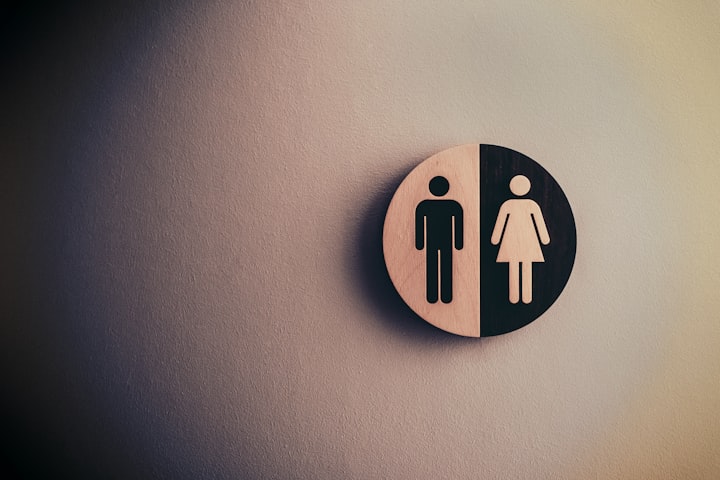Concept of 'Gender Ideology'
There are many misconceptions about gender and its associated ideology. While it may not be the most interesting topic, it is one that affects a number of people, both male and female

Discrimination against women
The basis for discrimination against women lies in the division between the "public" and the "private" spheres. Equal treatment of women is still debated in the private sphere, where biological roles such as motherhood and childbirth remain the prime determinants of identity and role in society. Despite the fact that women now have more freedom and opportunities than ever before, gender ideology still privileges men over women in the realm of work, family, and marriage. Despite the recent ruling by the Inter-American Court of Human Rights, this view is still prevalent in the private arena. Other practices of women in this mindset include domestic violence, incest, and marital rape, which remain considered private matters.
Moreover, in many countries, women are excluded from defining and interpreting symbolic systems and historical experience. Because of this, women are more likely to become victims of violence and become part of a discourse that legitimizes violence against them. This lack of control prevents both the state and the individual from taking action to remedy the situation. It is no wonder that the global gender gap has grown so large that more women are experiencing gender inequality than ever.
Moreover, the term "gender" is often used by anti-LGBT activists in Europe. France, Spain, and Poland all have laws that prevent abortion and other forms of sexuality, and the Catholic church has long feared promiscuous behaviour and abortion. However, the United States withheld aid to UNFPA due to concerns related to the Kemp-Kasten Amendment, which bans foreign aid from supporting coercive practices. In fact, UNFPA was accused of supporting these practices by the National Health and Family Planning Commission of China. The Biden Administration recently announced the restoration of U.S. funding to UNFPA in the early 2021 budget. In the meantime, the gender strategy document reiterates the pledge to reinstate U.S. aid to UNFPA.
Discrimination against women is not confined to the workplace, but affects every aspect of a woman's life. In fact, two-thirds of Democratic women and a quarter of Republican men report experiencing gender discrimination at work. This disparity is even more pronounced among Republicans, where only a third of Republican men say they have no experience of discrimination against women. Discrimination against women in gender ideology is prevalent in the workplace, including hiring, pay, and promotion.
Threat to democracy
The term 'gender ideology' refers to the belief that women should behave differently to men. These views are often reactionary. In the case of far-right movements, it implies an opposition to sex and gender equality. Femi-Nazis, for example, claim that women are morally deviant and possess no power over men. They also oppose marriage, surrogacy, and reproductive technologies.
Moreover, these views are popular among young, educated men, especially in north Europe and North America. These men are often a minority in colleges, and their political ambitions are largely unchallenged. Far-right politicians generally take a traditional view of gender and encourage women to stay home. Their views, in particular, include the idea of the virgin-mother, which suggests that women are weak and in need of strong men. Such views threaten democracy by preventing women from exercising their rights.
A growing body of research has examined the impact of anti-gender activism in Mexico. Using the twin crises of corruption and security to frame gender ideology as a security issue, anti-gender activists have tapped into the growing global security culture and formal security expertise to weaponize it as a cultural war tool. And while this approach is in many ways justified, it also undermines the debate on democracy and its deficits.
In the context of elections, the threat of gender ideology has an added dimension. As a consequence, women politicians are particularly vulnerable to the effects of such disinformation. Moreover, social media platforms must take action against these disinformation campaigns, which are not only damaging to women's rights but also have lasting effects on democracy. Therefore, the US Democratic Women's Caucus has called for increased pressure on social media platforms to stop promoting gendered disinformation.
Harm to individuals
In recent years, the concept of gender ideology has gained considerable traction, from being used as a catch-all phrase to a global conspiracy myth. It has even gained significant political traction, as a secular rallying cry against same-sex marriage in France to a platform for rightwing evangelical and Catholic groups to campaign against homosexuality and the Colombia peace accord. Here are some examples of the harmful effects of this ideology.
Firstly, anti-gender ideologies are often reactionary and fascist, supporting authoritarian governments. Secondly, they are inconsistent, combining rhetorical strategies from the right and the left, and resulting in a highly polarized discourse. In addition to this, anti-gender ideologies promote violence against migrant communities and portray women as dangerous and undesirable. And finally, anti-gender ideology is often accompanied by a resurgence of domestic abuse, a symptom of the pandemic of gender identity.
Lastly, gender ideologies often limit the personal development of men and women by perpetuating harmful stereotypes. In Poland, for example, more than 100 regions have declared themselves anti-LGBT zones, criminalizing openly transgender life and forcing many young men and women to live underground. Even the Vatican has called gender ideology "diabolical" and has raised concerns over its inculcation into schools.
The core of gender ideology is the distinction between males and females. It is based on biological differences and extends these to social milieu. It essentially creates a hierarchy, and stereotypes men and women in roles and social environments. In many societies, men and women are given different privileges because of this ideology. So, it is crucial to differentiate between gender ideologies and biological sex. These ideologies can lead to harmful social outcomes and even psychological problems.
Threat to society
The threat to society from gender ideologies is not just religious. The same ideology has widespread support amongst secular people. Political groups, religious leaders, and extreme right-wing movements in Latin America have all endorsed these efforts. Even left-wing politicians have declared that gender ideology is a threat to society. And it's only getting worse. While a threat to society from gender ideology may seem insignificant, it's real enough.
The problem with this kind of reactionary ideology is that it appeals to younger educated men, the group that is largely excluded from college. Far-right politicians also tend to take a traditional view of gender, discouraging women to leave the home. In addition, the concept of virgin-mothers implies that women are weak and need the protection of strong men. These political leaders view gender ideology as a threat to fundamentally different roles.
In addition, gender labelling compromises women's sense of belonging and lowers their motivation to pursue male-stereotypical domains. In stereotype-threat research, it has been found that people behave in ways that confirm gender stereotypes. For example, when men were given gender information, they performed significantly worse on a social sensitivity test. As a result, this threat is a strong factor in maintaining the status quo.
Anti-gender ideologies are spreading across the Western world. As these ideologies become more prevalent, the gains made by women and LGBT people will be threatened. But the debate will continue to rage until such time that a broader discussion of the issue can take place. And this is a dangerous time to debate the issues surrounding gender ideology and LGBT rights. That's why we need to be more vigilant about our political and social environment.
Gender ideology is a real threat to society. The prime minister of Hungary recently revoked funding for gender studies programmes. In his view, gender ideology is an attack on traditional family values and is an existential threat to society. Despite these attacks on traditional values, they are undoubtedly harmful for society. So, gender ideology should be avoided at all costs. That is the only way to avoid these devastating effects. Consider the facts.
About the Creator
Shaheer Malik
https://www.shaheermalik.com/
Serial Writer and Digital Marketing Professional






Comments
There are no comments for this story
Be the first to respond and start the conversation.